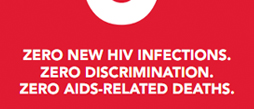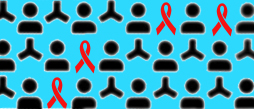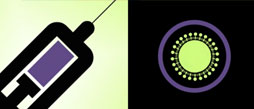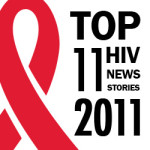2011 was a mixed bag in the global response to AIDS. While exciting medical breakthroughs in treatment and prevention hint at tremendous potential to reduce the transmission of HIV, these were often offset by reduced financial investment, profiteering, and discriminatory national policies. As we enter the 4th decade of HIV, we wanted to take a look back at some of the biggest stories that defined the AIDS response in 2011.
11 Major Stories from 2011
AIDS turns 30

30 years ago, the United States Centers for Disease Control and Prevention (CDC) issued a report outlining five cases of what was believed to be a rare form of pneumonia. In retrospect, this report would be the first official one to outline what is now recognized widely as the HIV epidemic.
Read our special feature on 30 Years of HIV.
ARVs Prevent Infection

On May 12, the results of the HPTN 052 trial indicated that if an HIV-positive person adheres to an effective antiretroviral therapy regimen, the risk of transmitting the virus to their uninfected sexual partner can be reduced by 96 percent.
The story, which made global headlines in May, was recently hailed as the biggest breakthrough of 2011.
Anti-Gay Legislation

In May, Ugandan MPs backing an anti-homosexuality bill, which included a death penalty clause for repeat offenders, said they would move forward with it, despite President Museveni’s calls for them to abandon it.
In November, Nigeria’s Senate voted to criminalize gay marriage, gay advocacy groups and same-sex public displays of affection.
Contraception and the Risk of HIV
 In October, a seven-country study published in the Lancet showed that women using hormonal shots to prevent pregnancy, such as the contraceptive Depo-provera, increased their risk of contracting HIV, and doubled the chance that they transmit HIV to their partners. This was major news because helping women avoid unwanted pregnancy is an important part of reducing mother-to-child transmission.
In October, a seven-country study published in the Lancet showed that women using hormonal shots to prevent pregnancy, such as the contraceptive Depo-provera, increased their risk of contracting HIV, and doubled the chance that they transmit HIV to their partners. This was major news because helping women avoid unwanted pregnancy is an important part of reducing mother-to-child transmission.
Medicines Patent Pool

In July, the Medicines Patent Pool announced their first agreement with pharmaceutical company – Gilead Sciences – to improve access to HIV and Hepatitis B treatment in developing countries. The Patent Pool was created in 2010 to improve access to HIV medicines by enabling the negotiation of voluntary patent licences to generic pharma companies, enabling them to develop and distribute new formulations.
Generic Anti-Retrovirals under Fire

In March, thousands protested terms in the ongoing free trade agreement between the EU and India, which pushes for tougher intellectual property regulations – threatening the production of generic pharmaceuticals in India, which currently produces the majority of anti-retroviral drugs used in developing countries.
Read more in UNAIDS’s Press Statement.
Funding Cuts for HIV

In November, poor funding resulted in the Global Fund’s decision to cancel its 11th round of funding. The Global Fund is responsible for about 70% of HIV treatment in developing countries.
Earlier in the year, the Kaiser Family Foundation and UNAIDS released a report showing that funding fell from US$7.6 billion in 2009 to $6.9 billion in 2010 – the first time funding has dropped in more than a decade.
New Targets in Global AIDS Response
 In June, at the UN High Level Meeting on AIDS, a new set of targets was outlined for the global AIDS response. Simply put: “Zero new infections, zero stigma and zero AIDS-related deaths”. The meeting concluded with the adoption of a declaration that seeks, by 2015, to double the number of people on ARVs to 15 million, end mother-to-child transmission, halve TB-related deaths in people living with HIV, and increase preventive measures for the “most vulnerable populations”.
In June, at the UN High Level Meeting on AIDS, a new set of targets was outlined for the global AIDS response. Simply put: “Zero new infections, zero stigma and zero AIDS-related deaths”. The meeting concluded with the adoption of a declaration that seeks, by 2015, to double the number of people on ARVs to 15 million, end mother-to-child transmission, halve TB-related deaths in people living with HIV, and increase preventive measures for the “most vulnerable populations”.
Crowdsourcing New HIV Strategy

In September, UNAIDS, recognizing the important role of young people in the global AIDS response, launched a digital campaign aimed at encouraging young people to crowdsource a new strategy on HIV and Youth. The campaign, #CrowdOutAIDS, provides platforms for young people to interact and engage with each other regarding issues related to HIV in their community and seeks to reach a collective set of agreements out of these interactions.
More Political Misinformation
 In November, Leader of the Democratic Alliance in South Africa, Helen Zille, called for people who knowingly infected others with HIV to be charged with attempted murder, and quested why the government should pay for people who contracted HIV through “irresponsible behaviour”.
In November, Leader of the Democratic Alliance in South Africa, Helen Zille, called for people who knowingly infected others with HIV to be charged with attempted murder, and quested why the government should pay for people who contracted HIV through “irresponsible behaviour”.
On August 1st, Uganda’s Minister of Health, Christine Ondoa, claimed she knew three people who had been cured of HIV through prayer.
New HIV Vaccine Approved for Trial

In December, the first and only preventative HIV vaccine based on a genetically modified killed whole virus has received approval by the FDA to start human clinical trials.
Developed at The University of Western Ontario, with the support of Sumagen Canada, the vaccine (SAV001) holds tremendous promise, stimulating strong immune responses in preliminary tests with no adverse effects or safety risks.
As we enter the 4th decade of HIV, there is no better time than now to celebrate success and renew our committment as responsible individuals, volunteers, activists, and sponsors. Reaching Zero New Infections is possible – and we hope it will be at the top of everyone’s resolution list this year.
